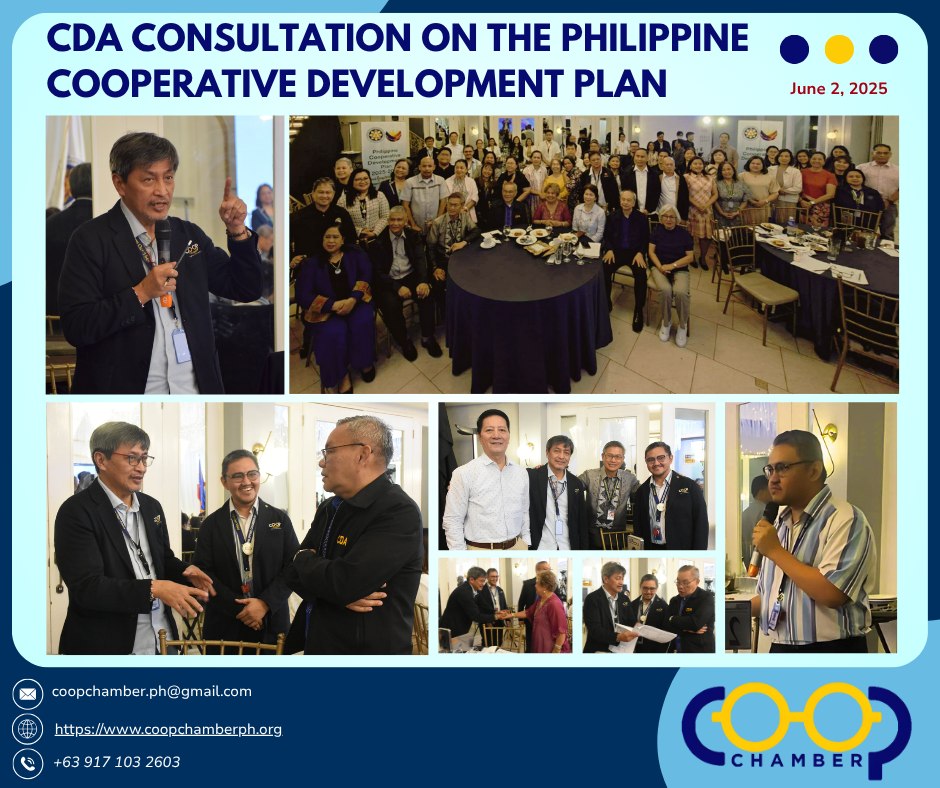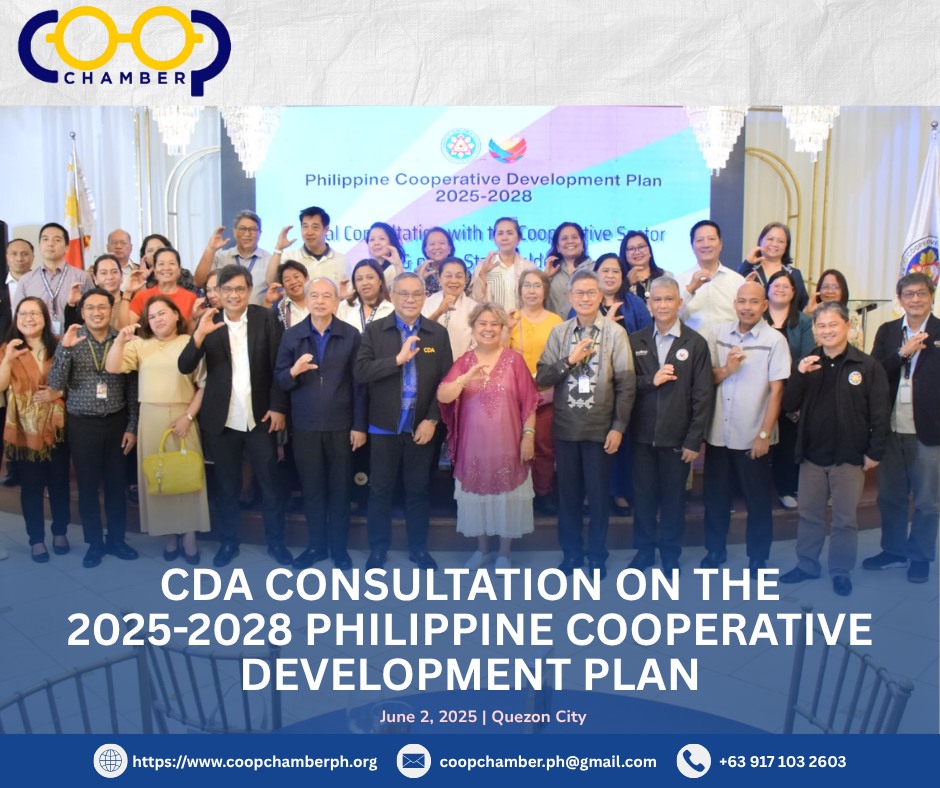In commemoration of the International Day of Cooperatives, the Philippine Chamber of Cooperatives, Inc. reaffirmed its commitment to advancing local and national development by actively participating in the recent consultation on the 2025–2028 Philippine Cooperative Development Plan (PCDP). The consultation, organized by the Cooperative Development Authority (CDA), was held on June 2, 2025, bringing together a diverse assembly of cooperative leaders, members, and partner stakeholders.

During the session, the Coop Chamber presented a comprehensive set of recommendations and insights aimed at strengthening the cooperative sector’s contribution to the country’s development agenda. Among its key proposals was a call to ensure that the PCDP recognizes and supports cooperatives in upholding the fundamental rights of marginalized and underserved communities. These include:
- The right to adequate food, particularly through the initiatives of agricultural cooperatives.
- The right to decent work, applicable to all cooperative enterprises.
- The right to quality education, supported by unions, federations, and training institutions such as the Cooperative College of the Philippines and Local Cooperative Development Offices (LCDOPs).
- The right to adequate housing, in partnership with service cooperatives and those with housing programs.
- The right to the highest attainable standard of health, through health-related cooperatives and providers.
- Access to social protection, climate change adaptation, and disaster risk reduction and management, as integral parts of cooperative development.
The Coop Chamber further emphasized the need for a comprehensive capacity-building program that would not only strengthen the CDA’s internal capabilities—covering officials, employees, and support staff—but also enhance the competencies of cooperatives across the country.
Additional insights shared during the consultation underscored several strategic priorities:
- The importance of documenting and showcasing the measurable contributions of cooperatives to the implementation of the Philippine Development Plan.
- The inclusion of clear frameworks, baselines, and specific, time-bound targets within the PCDP to ensure transparency and accountability.
- The active commitment of other stakeholders, including the academe and civil society organizations, in fostering a more inclusive and collaborative approach to cooperative development.
- A renewed emphasis on the CDA’s proactive role in strengthening cooperatives, highlighting participatory governance and coordinated engagement with national government agencies, local government units, and various mechanisms such as the National Cooperative Development Council (NCDC), National Advisory Council (NAC), Sectoral Apex Organizations (SAO), LCDOPs, the National Anti-Poverty Commission (NAPC) Cooperatives Sectoral Council, and non-government organizations like the Coop Chamber itself.
In support of these priorities, the Coop Chamber affirmed its readiness to contribute in multiple capacities, including:
- Active participation in the policy review, formulation, monitoring, and evaluation processes.
- Support for database management and monitoring, anchored on data sharing agreements.
- Engagement in advocacy and lobbying for cooperative-friendly policies and legislation.
- Assistance in the development of training modules and research tools tailored to the sector’s needs.
- Collaboration in monitoring and evaluating the implementation of the development plan to promote sustainability and resilience among cooperatives.
The Coop Chamber also expressed its full support for CDA Chairperson Undersecretary Alexander Raquepo’s vision to empower cooperatives nationwide. To further institutionalize this partnership, the Chamber formally requested to be included as an active member of the Technical Working Group (TWG) that will finalize the 2025–2028 PCDP.
As the cooperative movement continues to expand its role in nation-building, the Coop Chamber remains committed to fostering dialogue, championing policy reforms, and advancing initiatives that uphold the principles of cooperation, inclusion, and sustainable development.




